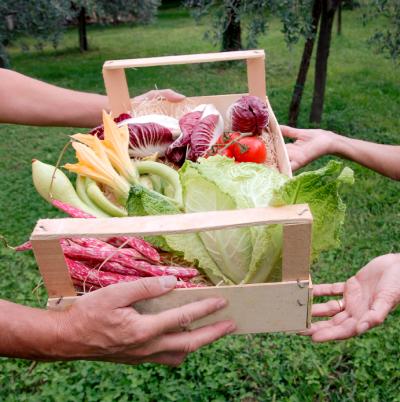Did you know that most of the nutrient content in fruits and veggies is infused by the plant into its particular fruit or veggie during the last few days of vine ripening?!
Think about this from a biological perspective. Plants don’t just make fruits and veggies for humans and other animals for no reason. And they don’t do it because they are being nice and providing food. Just as with all relationships, there must be benefit on both sides for the relationship to work and continue to exist. Plants want the same two things that all animals want, and that is to survive and reproduce.
You may be asking, “What does this have to do with eating locally?”
In order to get the latter of those two things accomplished, plants make seeds. However, plants need time to make mature seeds, seeds that have everything they need to become a viable offspring. Plants begin to infuse the fruit or veggie with all the nutrients that make them attractive to animals at the same time that their seeds are ready to go out into the world and make new plants, all during the last days of vine ripening. This mechanism is brilliant, because animals are attracted to the wonderfully colored, ripe food. Humans are animals too! The beautiful colors naturally drive us to want to eat it! The plant and animal both benefit from this process. The animal takes the food and gets energy and nutrients, while the plant gets the animal to take the seed or seeds to a new location, bettering its chances of reproducing.
Waiting for a fruit or veggie to “ripen” at the store or at your house isn’t quite the same as vine ripening. It is actually rotting. It is the rotting process that breaks down the more complex sugars into simpler sugars that make the produce softer and sweeter. Don’t be deceived – there are no more nutrients in store bought fruits and veggies once this process starts. Once the fruit or veggie is picked from the plant, no more nutrients can be infused into it. When food is picked prematurely, it is harder and travels better, but it also has far fewer nutrients. Local foods have much less distance to travel, and therefore can be picked when they are ready, changing their composition for the better. This is a major reason why it is so critical to eat locally.
Another reason to buy locally is that it is GREEN! The carbon footprint involved with transporting food is much less because not as much fossil fuel is used. Getting an apple from your backyard or the local apple farm not only tastes way better, and is more nutrient dense, but also hasn’t produced tons of pollution to get to you, as it would if it came from Washington State or South America.
Local farms are usually smaller and produce polyculture crops, meaning many different fruits and veggies. This is healthier for the land, for the plants, and for you and your children. Growing one crop in a huge industrial monoculture depletes the land, causing the use of petroleum based fertilizers (that’s right, gasoline-like products are used to grow your food…mmmmm). The lack of diversity also sets the scene for disease. Having plants grow and reproduce as nature intended makes healthier plants with more resistance to disease. In turn, less (if any) pesticides need to be used. Think about it: if it is designed to kill one form of life (insect or other), it isn’t good for you or your children to gobble up.
CSA stands for Community Supported Agriculture. It is a term used by small farms that have a direct relationship with the people who eat the food that they grow. As with any seller-consumer relationship, knowing the person you buy from most always enhances the service, the relationship, and the product (think of the service at mom and pop shops versus giant corporations). Getting your produce from a CSA can be a little more expensive, but the quality and variety of produce you can get is incredible! Variety is important for your health because different produce has different nutrients. We are designed to eat a variety of foods, not just bananas, apples and oranges. Depending on your area, you usually pay for the entire season up front, and then you pick up your weekly share of fruits and vegetables at the farm, or there is a local drop-off site once a week.
Learn more about the questionable practices of industrialized farming in America throught Michael Pollan’s books: In Defense of Food & Omnivore’s Dilemma.

